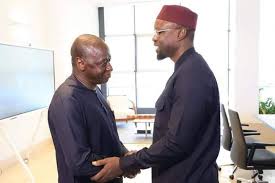Following its recent country mission, the World Bank is committed to strengthening its partnership with Senegal, promising to support the “priorities” of the new leadership.
The World Bank recently concluded a mission to Senegal led by Ousmane Diagana, World Bank Vice President for West and Central Africa, and Sergio Pimenta, International Finance Corporation (IFC) Vice President for Africa. The delegation met with Senegalese authorities, including President Bassirou Diomaye Faye and Prime Minister Ousmane Sonko, to reaffirm the Bank’s support for the government’s priorities.
These include key sectors such as governance, agriculture, energy, the digital economy, education and health, the Breton Wood institution explained in a statement to APA on Tuesday.
The mission discussed the preparation of a new Country Partnership Framework (CPF) for the period 2025-2030, strengthening a partnership that is more than 60 years old. This framework promises new opportunities for the sustainable and inclusive development of the West African country.
Consultations were also held on the creation of a financing platform for the first phase of the water highways. The World Bank presented its commitment through the Integrated Water Security and Sanitation Program in Senegal (PISEA), which extends over ten years in several phases, with an initial financing of $200 million, or nearly 120 billion FCFA, approved this year.
The delegation also visited Casamance, in the south of the country, to inaugurate a solar-powered water system in Niamone. “Water is the sap that nourishes growth; by ensuring universal access to it, we are cultivating a prosperous, sustainable future for Senegal. This will enable us to improve agricultural productivity, drive industrialization, and build resilience in the face of climate change,” said Ousmane Diagana.
Discussions also focused on ways to support small and medium-sized enterprises (SMEs). Sergio Pimenta took the opportunity to stress the importance of strengthening the private sector and attracting more investment to the African continent.
“By leveraging our global expertise and local presence, we are strengthening our support for small entrepreneurs, local champions and attracting investors,” said the IFC Vice President for Africa.
The mission concluded with a strategy seminar that brought together the World Bank’s West and Central Africa leadership team to define the next directions to ensure the success of priority projects in the region.
ODL/sf/ac/lb/as/APA


